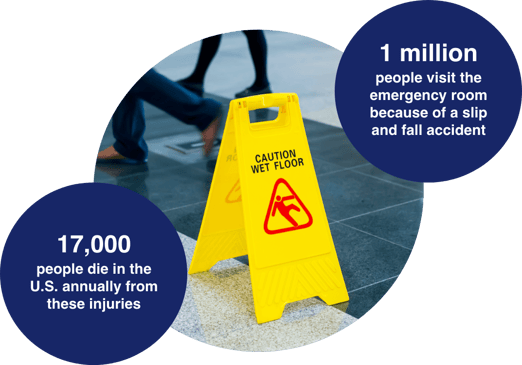Were you or a loved one hurt on public or private property?
Finding an experienced lawyer with the right background is crucial.
Our personal injury attorneys specialize in securing compensation for injury victims across Georgia.
Why do we fall? According to Alfred from Batman Begins, so that we can learn to pick ourselves up.
While this advice might be inspiring for Hollywood films and applicable for minor falls where the only harm done is a bruised ego and a little red-faced embarrassment, this insight oversimplifies the serious obstacles you might encounter in the aftermath of a moderate or severe slip and fall accident—starting with the catastrophic, long-term or permanent injuries you can suffer.
Whether you were seriously injured in a slip and fall, bit by a dog, attacked in a parking lot or otherwise hurt while on public or private property, our Georgia premises liability attorney can help you pick up the pieces of your life by securing financial compensation for your injuries and damages from the property owner or occupier. We can depose witnesses, gather critical evidence, consult with experts and negotiate with the defendant or their insurance company to secure the best possible outcome for you and your family.
Property owners in Georgia have a legal responsibility to ensure the safety of visitors and guests. Let us start by calculating the full value of your claim, then we’ll explain how we plan to hold negligent individuals, businesses and entities accountable for your medical bills, lost wages, pain and suffering and other damages as a result of an accident on their property.
Types of premises liability cases
Though slip and falls are by far the most common type of premises liability case, other claims can be filed as a premises liability lawsuit. In fact, under Georgia’s premises liability law, any injury victim can sue the owner or occupier of property if they negligently caused the accident—or failed to fix or warn about unsafe conditions which led to a serious injury or death.
The term “premises liability” describes a wide area of law that holds a property owner accountable for injuries or damages that arise as a result of unsafe conditions or poor maintenance on the owner's property. Premises liability law sets legal standards for property owners to make a reasonable effort to maintain a safe environment for visitors.
Some of the most common examples of premises liability cases include:
Slip, trip and fall accidents
When a person slips, trips or falls on public or private property, this is referred to as a slip and fall accident. Slip and fall cases are among the most common types of premises liability claims. Such accidents can happen because of slippery floors at work, on a public sidewalk, in another person's home, or in businesses like a department store, grocery store, or restaurant.
Negligent (inadequate) security
These cases often arise when a property owner or occupier fails to keep visitors safe by not providing adequate or reasonable security protections. For example, if a bank customer is mugged in the parking lot at night, the bank may be held liable if they failed to hire security guards or install adequate lighting or security cameras to deter criminals.
Swimming pool accidents
Whether it's a public pool or privately owned, pool owners have both a legal obligation and a degree of responsibility to protect visitors from drowning by installing the required gates, fences, and other safety equipment. If a pool owner fails to follow Georgia laws regarding pool safety, they can be held liable for a swimming pool accident or drowning.
Dog bites/attacks
Under Georgia's modified 1-bite rule, dog owners can be held strictly liable if their animal attacks or bites someone else after knowing that their dog was "vicious,” meaning the dog bit another person before or displayed aggressive behavior. Owners who fail to secure their dog can also be held liable if their dog gets loose and attacks someone, or if they don't leash their dog. Though dog bites are the most common, other animal bites can be reason to seek a fair settlement.
Toxic torts
If toxic chemicals or dangerous fumes on public or private property cause a visitor or guest to become ill, then it can fall under the umbrella of premises liability law. For instance, if a gas leak, asbestos, lead paint or toxic mold in an apartment complex causes harm to tenants or their guests, the property owner may be held liable under Georgia’s premises liability doctrine.
Elevator or escalator accidents
Determining who is liable for an accident involving an elevator or escalator can be confusing. The responsible party might be the building/property owner, a maintenance and repair company, or the manufacturer of the elevator or escalator. If the property owner or occupier is to blame, then the case may fall under premises liability laws.
Slip and falls: the most common premises liability claim
One of the many things that makes slip and fall accidents particularly challenging is the stigma surrounding such events. Young or old, folks often get embarrassed when they slip and fall or trip and fall, despite the fact that everyone falls down sooner or later. Sadly, this shame often prevents injured individuals from reporting the accident to a property owner or their employer, and victims frequently blame themselves for being “clumsy,” “uncoordinated” or “having two left feet”—even though the real cause of the accident is the property owner’s negligence.
Common causes of slip and fall accidents
In many slip-and-fall cases, the negligence of property owners can contribute to the incident. Some of the most common potential hazards that cause of slip, trip and fall accidents on public and private property, as well as in the workplace, include:
- ● Icy, slick, or wet floors
- ● Improper or worn footwear
- ● Insufficient lighting
- ● Loose rug
- ● Torn carpet
- ● Cracked sidewalk or flooring
- ● Ground clutter
- ● Broken steps or uneven surfaces
- ● Unsecured ladders or scaffolding
- ● Stray wires or cords

Common slip and fall injuries
According to the Centers for Disease Control & Prevention (CDC), the death rate for falls in the U.S. increased by 30 percent between 2007 and 2016 among older Americans. Regardless of your age, a slip and fall can result in permanent and catastrophic injuries, including:
Traumatic brain injury (TBI)
Falls are the most common cause of traumatic brain injuries and head trauma. Such head injuries can cause reduced mental cognition, as well as chronic migraines, dizziness, nausea, anxiety and confusion injuries that permanently impact your quality of life.
Broken bones
At least 300,000 older people are hospitalized each year for hip fractures. More than 95 percent of hip fractures are caused by falling, usually sideways. Broken or fractured bones in the hands, wrists and arms are also common injuries due to our natural instinct to try to brace ourselves when falling. An estimated 5 percent of all slip and fall accidents result in broken bones.
Knee Injury
Even a seemingly “minor” slip and fall can cause you to jerk or twist your knee in a way that causes severe injury such as a torn (anterior cruciate ligament) ACL or meniscus. These types of injuries can be quite painful, making it impossible to work or enjoy recreational activities for weeks or months until you fully recover, even with the help of physical therapy.
Back/spine injury
Slips and falls are one of the leading causes of spinal cord injuries and back pain. The force of the impact on your vertebrae can cause a pinched nerve, slipped disc or possibly even partial or total paralysis as a result of permanent spinal damage.
Shoulder injury
During a fall, a person’s natural instinct is to throw out their arms to brace their fall. While this instinct can help protect your head, the force can cause you to dislocate your shoulder or tear your rotator cuff. Such conditions can be extremely painful and take weeks (if not months) to fully recover.
Muscle sprains
Muscle strains, sprains and contusions are types of soft-tissue injury that are especially common in a slip and fall accident. In cases of minor sprains, rest and a cold compress may be all you need to heal; however, severe sprains can require therapy, surgery and other costly forms of medical care.
How to win a premises liability case
A serious injury can put tremendous financial stress on an individual or family. In fact, in 2015, medical expenses alone totaled more than $50 billion for falls—and that didn’t include the subsequent costs associated with a serious injury. While health insurance, Medicare and Medicaid can help offset some of these medical costs, you may need to consider filing a premises liability lawsuit to recover compensation for additional damages like lost work income, pain and suffering, emotional distress and more.
The key to successfully establishing fault and securing damages in a premises liability case in Georgia is determining the legal status of the visitor who was injured on the property. In Georgia, invited guests are afforded more rights than uninvited trespassers. From a legal perspective, visitors can be classified as:

Invitees
An invitee is someone who was explicitly invited by the property owner or occupier onto the property, or whose invitation was implied for lawful purposes and to the property owner's benefit. Examples of invitees include customers of a restaurant or store, event attendees and concert-goers, hotel and theme park guests, tenants of an office building, as well as residents of apartment complexes and their guests. Property owners owe invitees the highest standard of care to protect them against unsafe conditions and hazards.

Licensees
A licensee is someone who is permitted to enter the property for their own benefit, not necessarily to the benefit of the property owner or occupier. Examples of licensees include utility workers, unannounced and unexpected house guests, party guests and visitors to rental properties. Under Georgia law, property owners or occupiers have a duty to exercise “reasonable care” in protecting licensees from harm while they are on the premises, though this standard is not as strict as it is with invitees.

Trespassers
A trespasser is anyone who enters the property without a legal right. Aside from burglars and thieves, other examples of trespassers include someone who hunts on private property without getting permission from the property owner or someone who enters a construction site after hours. Property owners are not usually liable for a trespasser’s injuries, though there are exceptions—such as if the trespasser is a child, or if the property owner willfully harms the trespasser in a way that isn’t justified (i.e. “death traps” or “booby traps”).
In addition to determining the visitor’s classification, you must clearly prove liability (or fault) in your premises liability claim by establishing that the following 4 elements of negligence are true by a “preponderance of evidence” (which means by more than 50 percent):

Duty
The level of care 1 party owes another is referred to as “duty” or “duty of care” in the legal world. The duty of a property owner or occupier depends, in large part, on the classification of the visitor, as discussed above (invitee, licensee, or trespasser).

Breach
Once you’ve determined what duty was owed, you must prove that the property owner or occupier “breached” or violated this duty of care

Causation
Next, you must establish that your injuries or damages resulted from the property owner’s breach of duty. Expert witnesses are often called in to help prove causation in premises liability cases.

Damages
Lastly, you need to show that you suffered real physical, mental, emotional, and/or financial harm from the property owner's breach of duty.
Georgia follows a modified comparative fault system, which means that your damages can be reduced or eliminated altogether if you are found to be partially or fully responsible for your injury. For example, if you sue a landowner for $100,000 but are found to be 40 percent liable, your final award would be reduced to $60,000. This legal principle is commonly brought up in premises liability cases since visitors have a legal duty to use reasonable care in protecting their health and safety.
For this reason, it's vital you consult with an experienced premises liability lawyer near you as soon as possible to talk about your potential case and get help starting the negotiation process.
Meet your Georgia premises liability lawyer
Julian Lewis Sanders founded The Law Offices of Julian Lewis Sanders and Associates in 2003. The firm proudly serves Atlanta and the surrounding communities of Georgia in personal injury law.
“Growing up in a military family, I learned the importance of dedication and honor early, which established a foundation for my eventual
law career.”
Everyone who works for The Law Office of Julian Sanders is responsive and prompt with answering all the questions I may have. They will walk you through step by step. I couldn’t have picked a better law firm to represent me. – Dasha Chapman
We want to help you. Give us a chance to listen to your needs, answer your questions, and show you how we will take swift strategic action to help right the wrong that has been done to you.
Call or text the Law Offices of Julian Sanders & Associates 24 hours a day, 7 days a week:
(678) 705-9581
PREMISES LIABILITY
If you would like to learn more about filing a premises liability lawsuit against a public or private property owner in Georgia, then you’ve come to the right place. The team of personal injury lawyers at Julian Lewis Sanders & Associates is standing by to answer your questions and help you determine the next best steps.
Don’t wait too long, as there is a strict time limit placed on these types of cases. The clock is ticking! Talk to a legal professional today to get started.


